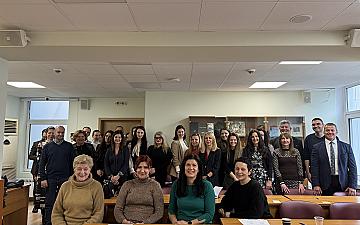In recent times, there has been a growing concern about disinformation in political agitation. In a world where information is just a click away and social media dominates, it is easy to get lost in a web of false promises and manipulated information. This poses serious challenges to the democratic process and requires us to uncover the real problems behind veiled political agendas.
Disinformation in political agitation is a phenomenon that relies on the deliberate spread of false, distorted, or manipulated information to influence people's opinions and actions. This can involve disseminating fake news, taking information out of context and using emotional manipulation.
One of the primary means of spreading disinformation is through social media. They have become platforms where any information can be shared, regardless of its veracity or source. Often, people share information without fact-checking, which contributes to the spread of disinformation. It is important to understand that even genuine problems can be distorted to amplify certain political agendas.
False promises are a common tool in political agitation. Politicians often make promises of quick and easy solutions to complex problems, which can be highly manipulative. Promises of change and solving real problems are important in political agitation, but they need to be supported by concrete plans and strategies, rooted in a thorough understanding of the issues at hand.
It is crucial for citizens to critically evaluate the information presented to them during political campaigns. This requires a willingness to fact-check, seek out multiple sources, and engage in informed discussions. By doing so, we can distinguish between genuine proposals aimed at solving real problems and empty rhetoric designed to deceive and manipulate.
However, the responsibility doesn't lie solely with citizens. Political leaders, parties, and the media also have a role to play in combatting disinformation. They should prioritize truth and accuracy in their messaging, provide transparent and reliable information, and actively work to counter misinformation and propaganda.
Moreover, educational institutions have a crucial role in equipping individuals with the necessary critical thinking skills to navigate the complex landscape of political agitation. Promoting media literacy and teaching students how to discern reliable sources of information can empower them to make informed decisions and resist the influence of disinformation.
In conclusion, the prevalence of disinformation in political agitation poses a significant threat to democratic processes. Recognising and countering false promises and manipulative tactics is essential for an informed and engaged citizenry. By staying vigilant, demanding the truth, and supporting evidence-based policies, we can address real problems and foster a healthier political environment built on trust and integrity.









